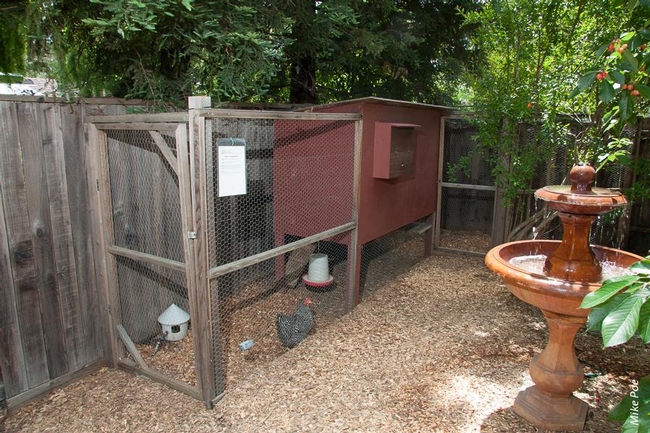Posts Tagged: Maurice Pitesky
Backyard chickens ruling the roost in Bay Area
Even though backyard chickens are illegal in some Bay Area communities, their popularity continues to grow, reported Rebecca Parr in the Contra Costa Times.
The story was centered in Hayward, a community that is the latest to deal with local interest in very small-scale poultry husbandry. San Jose, Oakland, Berkeley and San Francisco do not require a permit or fee. Some communities require permits to slaughter animals for food. In Palo Alto, chicken permits are $60.
Parr spoke to UC Agriculture and Natural Resources poultry expert Maurice Pitesky about the growing trend of backyard chicken ownership.
"It's part of a general trend toward local food," said Pitesky, who is a UC ANR Cooperative Extension specialist based at UC Davis. "People read things in the media and feel they might be able to have more control and safer food if they're growing it themselves. It's a growing trend in urban areas, and poultry are relatively easy type of food animal to raise."
The article provided a link to the UC Cooperative Extension Poultry website, which includes information for backyard poultry, small-scale production and commercial production.
Bird flu in the Midwest causing egg prices to rise
An outbreak of bird flu in the Midwest is forcing farmers to euthanize many sick chickens, causing egg prices to rise dramatically, reported Jonathan Bloom on ABC News 7 in San Francisco. Bloom spoke with UC Agriculture and Natural Resources Cooperative Extension poultry specialist Maurice Pitesky via Skype. He said the disease, highly contagious in chickens and turkeys, is being spread by migrating geese.
"And they're not, for the most part, affected by the disease, but they can be carriers of it," Pitesky said. "It means we're euthanizing those flocks that are affected."
The story said 40 million laying hens, one-eighth of the country's laying population, had to be euthanized, dramatically reducing the egg supply. Turkeys are still more susceptible to the condition.
“Turkey prices are going up also, and we're still not sure how that will affect turkey prices around Thanksgiving," Pitesky said.
California chickens haven't been hit by bird flu, but they are producing fewer eggs because new laws went into effect this year requiring more room for hens to move around, reducing some farms' capacity.



